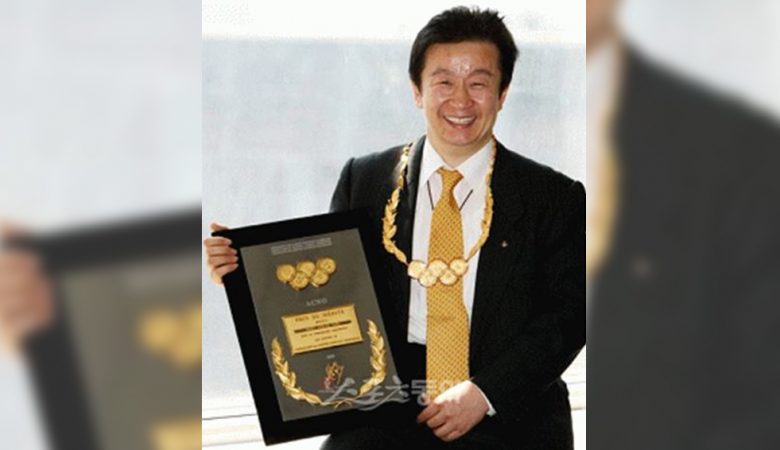 7th batch Valedictorian Maria Fernanda Delgado reflects on “Success Factors of Seoul 1988 & PyeongChang 2018 and Sport Diplomacy” as lectured by sport diplomat Kang-ro “Rocky” Yoon on August 21.
7th batch Valedictorian Maria Fernanda Delgado reflects on “Success Factors of Seoul 1988 & PyeongChang 2018 and Sport Diplomacy” as lectured by sport diplomat Kang-ro “Rocky” Yoon on August 21.
Founder of the International Sport Diplomacy Institute and the first Korean recipient of the ANOC Merit Award, diplomatic superstar Mr. Yoon refers to the 1988 Seoul Olympics as the “Renaissance Games,” as it marked a turning point for Korea.
Mr. Yoon, who has served as a special advisor to both the Seoul 1988 Summer and PyeongChang 2018 Winter Olympic Games, stated that people came together as a community for the Seoul Games to bring about a rebirth of Korea.
From cleaning their neighborhoods to reducing the number of vehicles circulating Seoul as well as an increasing English language education, the citizens of the country were toasting to the success of the Olympic Games in Seoul. These actions not only translated to the world, but they also worked internally as it resulted in an increase in self-confidence and country pride.
The legacy of the Games is still relevant and tangible today, mainly through the Olympic Park, which happens to be my favorite spot in Seoul. The Korea Sports Promotion Foundation (KSPO) was founded from the profit of the Games to ensure the future of sports in South Korea. KSPO is a main supporter of the Dream Together Master program, so in a way we DTM students are also legacy of those same Games!
Since the Games in 1988, Korea hosted multiple international sport events including a FIFA World Cup, two editions of the Asian Games, a FINA World Championship, a winter Olympic Games, and soon an edition of the winter Youth Olympic Games in 2024.
PyeongChang 2018 celebrated the 30-year anniversary of the success of the Seoul 1988 Olympic Games. Mr. Yoon calls this event as the “Peace Games” because of the special moment in which South and North Korean athletes marched into the Opening Ceremony as a unified team. This was a significant moment for the Korean peninsula because it brought political neutrality to the region for at least during the period of the Games.
I was lucky to be a volunteer in the 2018 PyeongChang Games, which was my first exposure to Korean culture. Despite an overwhelming international community from 92 nations flocking to this sport event, I could still feel Korean pride, which I now perceive was a result from the success of the Seoul Games and the efforts of the Korean community.
I consider myself an Olympic baby because I was born in 1988, and that was an Olympic year. The fact that there was an edition of the Olympic Games in the year I was born in the city I have had the chance to live in for a year by enrolling in DTM is not a coincidence. I feel like I am home in a very particular way.
(contribution by Maria Fernanda Delgado)